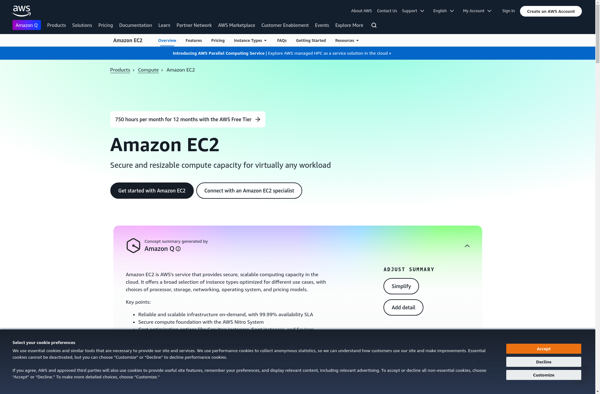DataCell
DataCell: No-Code Data Platform
Connect, prepare, and activate data without coding with DataCell's intuitive drag-and-drop interface for building data pipelines and integrations
What is DataCell?
DataCell is a no-code data platform designed to empower anyone to work with data, regardless of their technical abilities. With an intuitive drag-and-drop interface, DataCell makes it easy to connect different data sources, combine and transform data, build dashboards and reports, set up workflows and integrations, and more.
Some key capabilities and benefits of DataCell include:
- Connects to hundreds of data sources - databases, SaaS apps, file storage, etc.
- No-code data transformation and preparation
- Drag-and-drop pipeline builder to preprocess and move data
- AI-powered data modeling and schema management
- Built-in data vault for storing processed datasets
- Workflow automation for managing repeated processes
- Real-time analytics dashboards and reports
- Options for embedding and distributing data products
- Integrates with popular BI and data visualization tools
- Collaboration features for teams
With robust governance capabilities to manage users, data, and environments, DataCell provides a flexible self-service data platform for organizations looking to democratize data and unlock its value, without needing technical resources for routine data tasks.
DataCell Features
Features
- No-code data platform
- Drag-and-drop interface to build data pipelines and integrations
- Connect, prepare, and activate data without coding
- Intuitive user interface
Pricing
- Subscription-Based
Pros
Cons
Official Links
Reviews & Ratings
Login to ReviewThe Best DataCell Alternatives
Top Ai Tools & Services and Data Integration and other similar apps like DataCell
Here are some alternatives to DataCell:
Suggest an alternative ❐Amazon Web Services

Microsoft Azure

Linode

DigitalOcean

Amazon Elastic Compute Cloud

GoDaddy

Amazon Lightsail

OnWorks

Hostinger

Heroku

Vultr

Google Compute Engine
